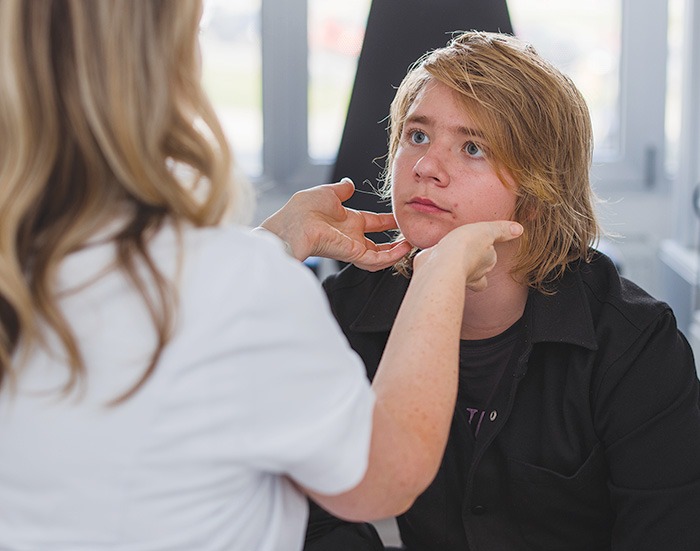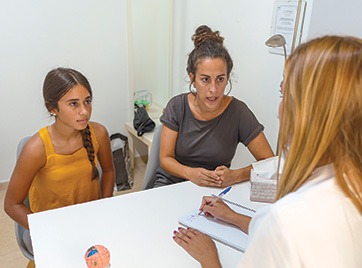Pharmacist scope of practice has been expanding to meet the surging needs of our rapidly ageing population, as discussed on the Policy Panel – Scope of Practice review today at day one of PSA24.
In mid-2023, federal Minister for Health and Aged Care Mark Butler established the Unleashing the Potential of our Health Workforce – Scope of Practice Review to address this issue.
In the interim, most jurisdictions have moved forward with their own scope of practice pilots and programs, with these funded interventions designed to address gaps in primary care.
With the draft recommendation of the Review imminent, the panel experts revealed to attendees some of the key changes that are underway, and what’s required to allow pharmacists to practice to their full scope – and beyond.
In an apt sentiment, panellist Professor Lisa Nissen FPS, Director, Health Workforce Optimisation, Centre for Business and Economics of Health, UQ said while the Scope of Practice Review refers to ‘unleashing’ scope of practice, she’d like to see it ‘explode.’
What will the review unleash?
Panellist Dr Shane Jackson FPS, community pharmacist and PSA CPA/Strategic Agreement negotiating lead, who has been deeply involved in scope of practice reviews, provided some insights to delegates on the impacts to expect.
‘What happens with these review processes is that they set the framework for the future,’ he said. ‘And so as long as we’ve got a roadmap, which is what should occur through this process, then it’s about us [setting out the] bite-sized pieces that can be achieved in a rational and meaningful way.’
There will need to be a regulatory framework at both a national and state level, he emphasised.
The Scope of Practice Review presents an opportunity to seriously address remuneration for pharmacists on the ground, said Dr Jackson.
‘We can’t continually ask pharmacists to do more for the same reimbursement that we are getting,’ he said. ‘We are expecting them to do more in terms of their capacity and capability, so reimbursement needs to be addressed.’
A framework that trusts pharmacists to make the right decisions according to their authority and professional capability, focused on helping patients from an appropriateness and convenience point of view, is what’s needed.
‘They should not have to go back to their GP for a new prescription,’ said Dr Jackson.
The red tape burden must also be addressed to free up the time of healthcare professionals and optimise patient care.
‘That means I’ve got more clinical time with the patient, because I’m not spending administrative time on other activities,’ he said.
What does the government say?
To get better health outcomes for people with chronic health conditions, a multidisciplinary approach is required, said Panellist Penny Shakespeare, Deputy Secretary, Health Resourcing, Australian Government Department of Health and Aged Care.
‘We need to support better care for people with the current health conditions that they have, and to do that, we need multidisciplinary team-based care,’ she said.
‘We know that that gets the best health outcomes for people when they are being treated for chronic illness, and we heard from the [Strengthening Medicare] Taskforce that we must focus on prevention and stop people developing the same complexity and chronic conditions that they are currently [developing].’
When will there be unification across jurisdictions?
Prof Nissen has been at the forefront of pharmacy scope of practice pilots. She shed some light on how the jurisdictional divide is affecting patient care.
‘The beauty of a federation is that we’re allowed to be different. But there’s no consistency, and that causes an issue,’ she said.
Harmonisation is currently seen as a ‘wicked problem’ because of the complexity of the distributed jurisdictions.
‘When there are prescribing pilots, or pilot activities, where you see a proof of concept, such as with vaccination, when we saw one state, and we had to go and prove it to another state – it’s still not consistent, and now we’re doing the same thing again with the UTI, OCP and dermatology prescribing pilots,’ she said.
‘So a lot of it is understanding patient journeys and being able to provide a consistent journey of care that’s within your scope.’
Where does the 8CPA fit into the equation?
Earlier this year, during the 8CPA signing, a second agreement – the Strategic Agreement on Pharmacist Professional Practice – was signed by PSA National President Associate Professor Fei Sim FPS and Minister for Health and Aged Care Mark Butler.
But what does this mean for scope of practice?
‘We want to continue our work getting rid of the regulatory and policy and funding barriers to [allow] pharmacists to work closer to the top of their scope of practice, do things in new ways and provide more innovative services,’ said Ms Shakespeare. ‘But we need professional standards and frameworks around that, and I’m really excited about our opportunities to make those more available to people through the digital revolution.’
Working with PSA will help the Department work at an operational level, wherever pharmacists are working, and the information exchange will help to ensure pharmacists have the support they need through the frameworks.
Gathering the right evidence base for expanding scope of practice – and the regulatory and funding reforms that go to support scope of practice – will also be key.
‘We’ll be looking to PSA to help us to get good, high-quality evidence that helps us make the case to expand scope of practice from a policy, funding, and regulatory perspective,’ she said.
What do consumers want?
Panellist Leanne Wells, health consultant and consumer advocate, undertook a project for PSA where she spoke with over 80 consumers in 14 focus groups.
‘Resoundingly, they are very well versed on issues of access and affordability, and concerned about strains on the system that range from out-of-pocket costs, difficulty getting into a GP, waiting lists for GP appointments, you name it,’ she said.
‘They’re also acutely concerned because they’re living around inequity in the system that particularly came through from rural consumers and people from culturally and linguistically diverse backgrounds.
‘But they’re very optimistic that there’s a role for pharmacists as part of the solution.’
One of the things that came through in the discussions Ms Wells had with consumers was how frustrating the current system is to navigate across states and territories.
One of the consumers involved in the project was on 52 tablets a day.
‘That’s the sort of [medicine management] complexity we’re dealing with,’ she said.
‘It was almost a plea that came across from consumers to connect things up, get the workforce working optimally, and stop them working in silos.’



 Pharmacists have always prescribed, but they have the potential to prescribe much more
Pharmacists have always prescribed, but they have the potential to prescribe much more



 Sponsorship information
Sponsorship information


 Talking to patients who have questions
Talking to patients who have questions





